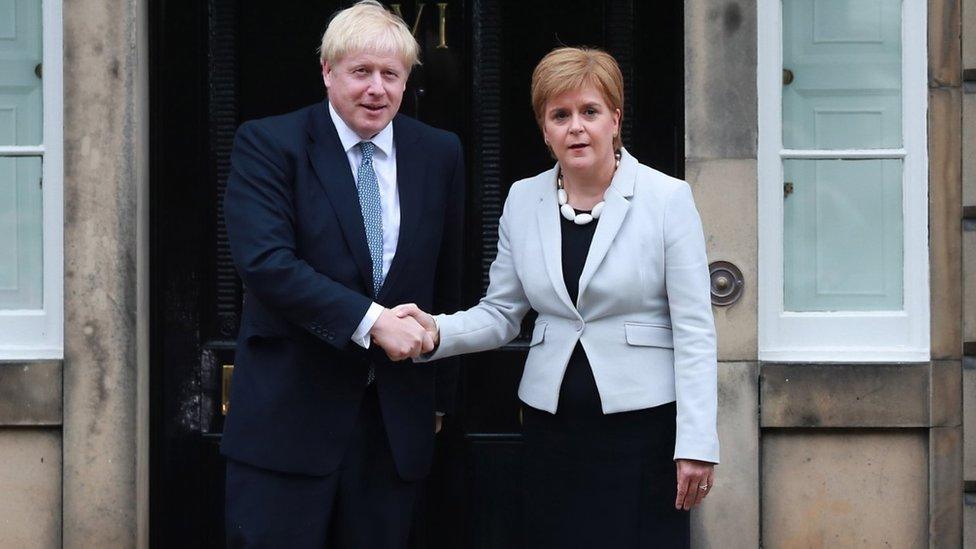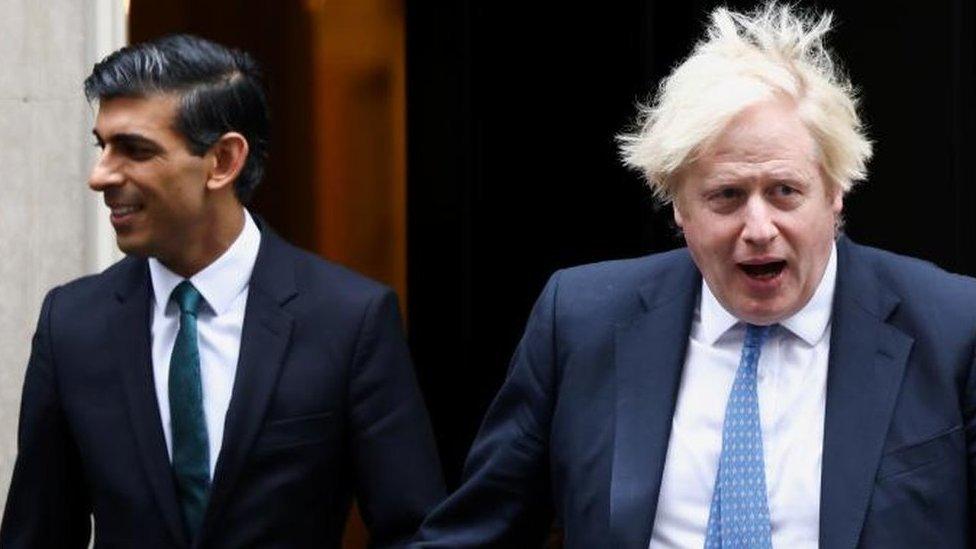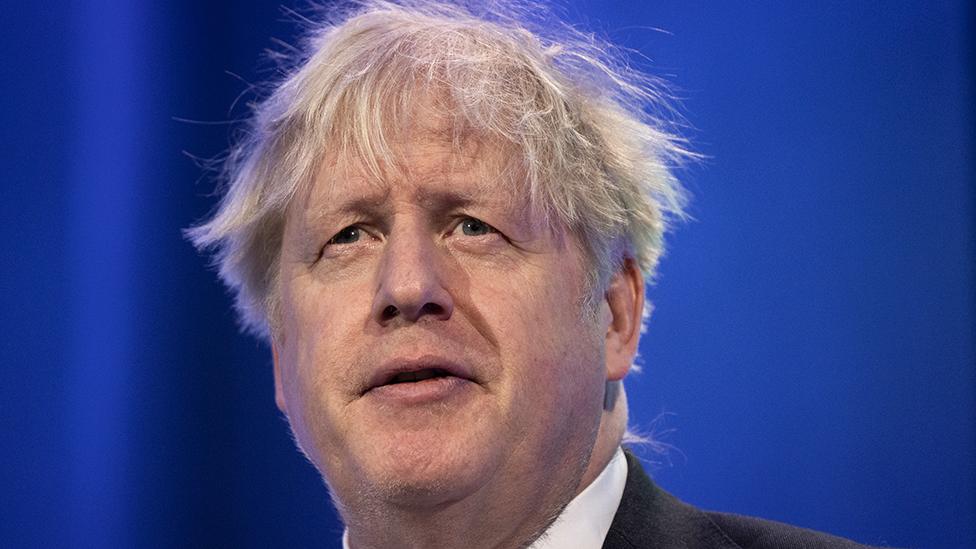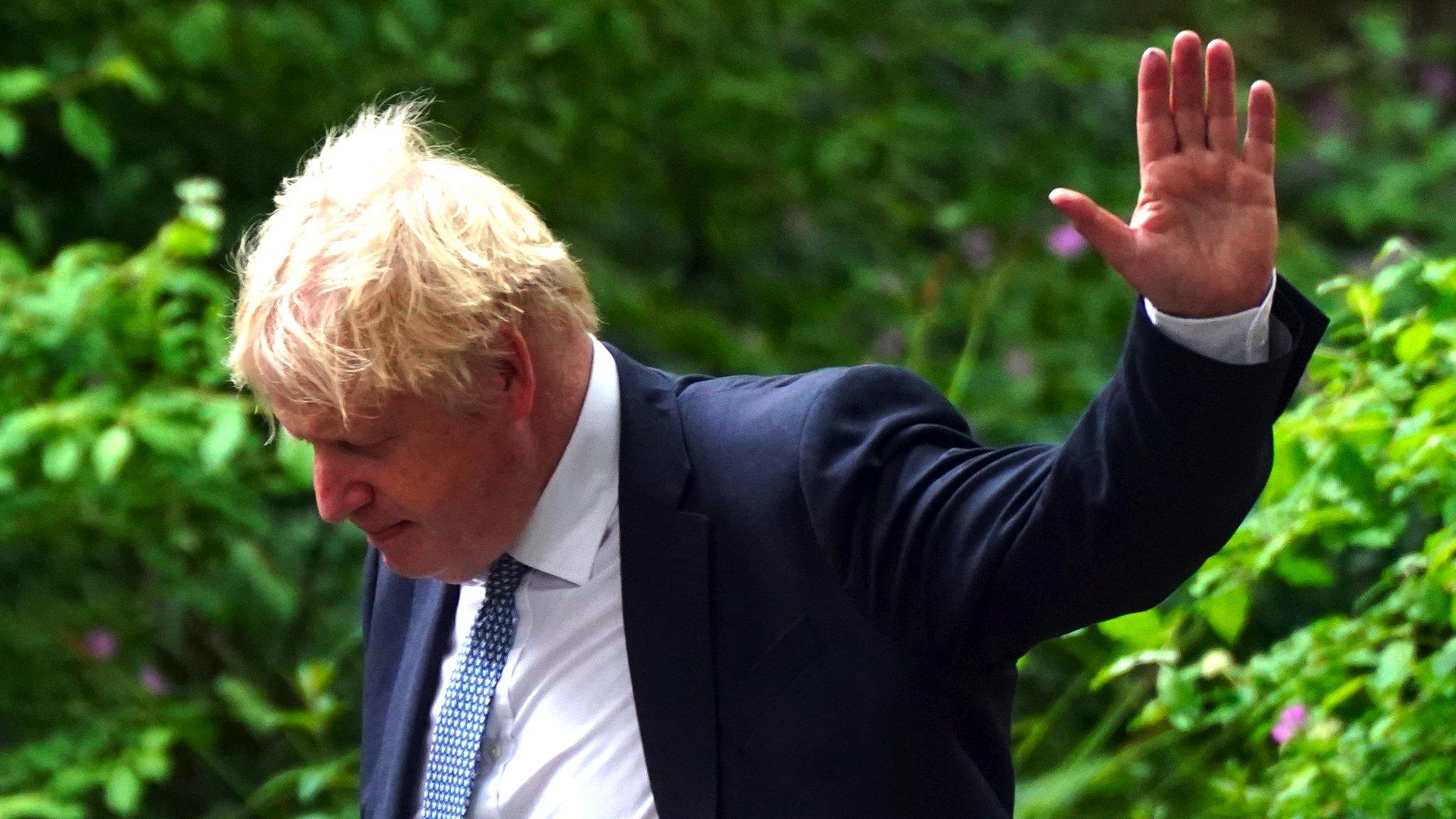Johnson and Sturgeon headlines make PM and FM's job to govern tougher
- Published

Nicola Sturgeon welcomes Boris Johnson to Bute House, Edinburgh, in July 2019
Who would be a prime minister or a first minister with predecessors keeping as… busy… as this?
There are many, many differences between the story of Boris Johnson and the story of Nicola Sturgeon.
But, politically what unites them is what has happened makes the business of being prime minister - or First Minister of Scotland - considerably harder.
The magnetism of the drama swirling around Mr Johnson should not distract from the two central points at its core.
Firstly, those implications for Rishi Sunak attempting to get on with the job right now giving the impression of running a calm, considered administration shorn of the turbulence of recent years.
Mr Johnson has made Mr Sunak's job harder - and that matters in the here and now.
Secondly, that a committee of his peers - containing a majority of Conservative MPs - has concluded in the strongest terms that Mr Johnson's integrity, or the perceived lack of it, was deserving of a sanction which would almost certainly have prompted a by-election.
In that case Mr Johnson would have had to win over his constituents in west London in order to carry on as an MP.
What a conclusion.

Prime Minister Rishi Sunak served as Boris Johnson's Chancellor in 2020
The man who was prime minister this time last year not just driven out of Downing Street, but driven out of parliament, by his fellow MPs. Even his fellow Conservatives.
The Privileges Committee meets on Monday morning.
Its members have been offered extra security, such has been the profile and anger this inquiry into Boris Johnson has provoked.
Some MPs are livid that Mr Johnson and his supporters have been, in their view, so cavalier in impugning the reputation of those on the committee, who have no capacity to respond publicly while they are compiling their report.
Mr Sunak and Mr Johnson met a week last Friday and discussed his honours list.
Accounts of that meeting differ considerably.
No 10 insist they have acted honourably - and have gone to considerable lengths to try to prove it.
They declassified a document, external to point out they had not tinkered with the list of nominees for peerages in recent weeks.
But critics are still not convinced - asking instead what did or did not happen much earlier.
Mr Johnson's allies claim they've been misled - even lied to.
Downing Street sources say this is "nonsense".
This week at Westminster will be dominated by Boris Johnson and the report into his conduct expected in the next few days.
But what gives this row a much longer tail is the three by-elections that will follow.
From what I am hearing, there is a desire within the Conservative Party to get on with them as quickly as possible, within the next month or so.
The parties are already out campaigning.
The Liberal Democrats are upbeat about their prospects in Mid Bedfordshire. Labour are upbeat about Uxbridge and South Ruislip, which is a marginal.
But it's entirely possible the Conservatives win at least some of the contests - especially given Mid Bedfordshire and Selby and Ainsty had big Conservative majorities at the last election.
But as one senior Tory put it to me, it'll be the swing that matters - if there's a big swing against the Conservatives it'll set off the jitters again for many, many Tory MPs who fear oblivion at the general election.
There is nothing good about these by elections for Rishi Sunak.
Meanwhile, at Holyrood, one of the defeated contenders to replace Nicola Sturgeon in spring's leadership race has called for her to stop sitting - for now - as an SNP MSP.
Ash Regan told BBC Radio Scotland Ms Sturgeon should resign - or the first minister should consider suspending her.
It is amid this noise and the headlines that both the prime minister and the new First Minister of Scotland, Humza Yousaf, have to find the time and the space to get on with the very business of governing.
But this is made vastly more difficult by their predecessors' capacities to generate attention.
Related topics
- Published9 June 2023

- Published9 June 2023

- Published10 June 2023

